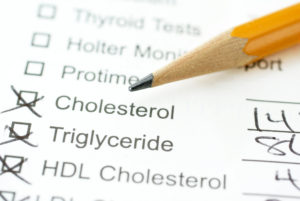 Cholesterol levels are a top concern among Americans focused on heart health. Whether you’re using statin medications or lifestyle measures to reduce it, can LDL get too low?
Cholesterol levels are a top concern among Americans focused on heart health. Whether you’re using statin medications or lifestyle measures to reduce it, can LDL get too low?
Your body needs cholesterol, even the bad stuff. Low-density lipoprotein, or LDL, is the stuff doctors are concerned about. Small particles can accumulate on arterial walls and cause atherosclerosis, which is the main reason it is such a major risk factor in heart disease.
Advertisement
But you need LDL for healthy hormone levels and cell membranes; it allows your cells to communicate with each other. If levels get too low, are these important functions impeded?
That can be controversial.
The American Heart Association and other organizations suggest elevated LDL should be brought down to 70 milligrams per deciliter (mg/dL). Other research, however, has shown it can go much lower without health implications.
On the other hand, there is work to suggest that when LDL gets too low, it may influence how high-lipid organs, like the brain, function. There has also been evidence that aggressive statin treatment can boost the risk of osteoporosis.
But those studies may say more about aggressive statin use than low cholesterol. For example, people with genetic conditions that have very low levels of LDL do not have the same issues.
Advertisement
Further, a 2018 meta-analysis published in JAMA Cardiology found that taking LDL as low as 20 mg/dL had no negative health implications regardless of how it was accomplished. They also found cardiovascular disease risk dropped by 20% when LDL was reduced by 39 mg/dL (in this case from 70-31).
Aside from statin medication, you can work to lower cholesterol by limiting intake of refined grains, processed meat, and sugary food and beverages. Foods with healthy fats, fiber, and antioxidants can all help reduce cholesterol and manage levels.
If you’re working to lower LDL cholesterol, there is a very good chance you don’t have to worry about it going too low. Keep up your efforts and experience the multitude of benefits associated with lower LDL cholesterol.
